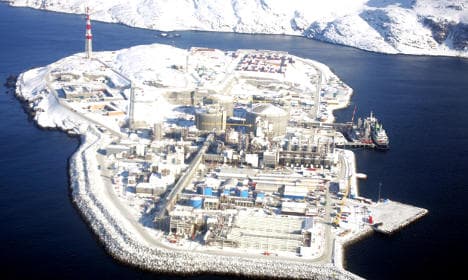New Norway ice map could open up oil search

Norway wants to redefine the contours of the Arctic ice edge, the government announced on Tuesday in a controversial decision that could allow it to further open the Barents Sea to oil and gas exploration.
The area is closed to the oil and gas industry and a 2013 agreement between the minority government and its centre right allies prohibits development in the rich and fragile ecosystem at the ice edge.
However global warming has seen the ice retreat further north fuelling debate on where its edge is now located.
"It's important to have updated knowledge on where the fragile areas are located," Norway's Minister of Climate and Environment Tine Sundtoft said in a statement.
"Therefore I've asked the Norwegian Polar Institute to update their calculations."
The institute will update Norway's sea ice map -- currently based on data collected over two decades up to 1989 -- with new satellite data from between 1984 and 2013.
This would allow the government to argue that new oil concessions soon to be offered to the petroleum industry in the Barents Sea are located far from the sea ice.
When objections over drilling in the area erupted late last year, the government decided to delay the latest round of bids for concessions.
On Tuesday, centre-right parties in parliament and environmental groups said however that they opposed the re-drawing of the boundaries and accused the government of pandering to the oil industry.
"We are not moving the borders of the ice edge," Prime Minister Erna Solberg told TV2 news. "It's nature which is moving the boundaries of the ice edge."
Oil companies faced with declining North Sea oil and gas reserves have pushed for new prospecting licences in areas previous off-limits.
Environmental groups have argued that the environmental risks of Arctic drilling would be too high and that it would probably not be viable in light of falling oil prices.
Comments
See Also
The area is closed to the oil and gas industry and a 2013 agreement between the minority government and its centre right allies prohibits development in the rich and fragile ecosystem at the ice edge.
However global warming has seen the ice retreat further north fuelling debate on where its edge is now located.
"It's important to have updated knowledge on where the fragile areas are located," Norway's Minister of Climate and Environment Tine Sundtoft said in a statement.
"Therefore I've asked the Norwegian Polar Institute to update their calculations."
The institute will update Norway's sea ice map -- currently based on data collected over two decades up to 1989 -- with new satellite data from between 1984 and 2013.
This would allow the government to argue that new oil concessions soon to be offered to the petroleum industry in the Barents Sea are located far from the sea ice.
When objections over drilling in the area erupted late last year, the government decided to delay the latest round of bids for concessions.
On Tuesday, centre-right parties in parliament and environmental groups said however that they opposed the re-drawing of the boundaries and accused the government of pandering to the oil industry.
"We are not moving the borders of the ice edge," Prime Minister Erna Solberg told TV2 news. "It's nature which is moving the boundaries of the ice edge."
Oil companies faced with declining North Sea oil and gas reserves have pushed for new prospecting licences in areas previous off-limits.
Environmental groups have argued that the environmental risks of Arctic drilling would be too high and that it would probably not be viable in light of falling oil prices.
Join the conversation in our comments section below. Share your own views and experience and if you have a question or suggestion for our journalists then email us at [email protected].
Please keep comments civil, constructive and on topic – and make sure to read our terms of use before getting involved.
Please log in here to leave a comment.